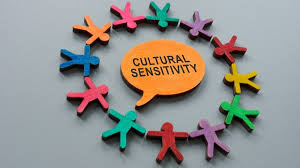
Don’t Go Global Without It: Cultural Sensitivity In Marketing Explained
Explore cultural sensitivity in marketing and global campaigns, boost international branding with cross-cultural communication strategies.
Table of Contents
- Cultural Sensitivity in Marketing: The Global Game-Changer
- The Heartbeat Of Global Success: Cultural Sensitivity in Marketing
- Global Campaigns Gone Wrong: When Brands Miss The Mark
- Building Cultural Sensitivity in Marketing Strategy
- The ROI of Respect: Why Cultural Sensitivity in Marketing Pays Off
- Conclusion: Think Global, Act Cultural
Cultural Sensitivity In Marketing: The Global Game-Changer

In today’s borderless economy, where brands go viral across continents overnight, one element can make or break a global campaign—cultural sensitivity in marketing. This blog explores the importance of infusing cross-cultural communication into your marketing strategy and how it can elevate your international branding efforts.
The Heartbeat Of Global Success: Cultural Sensitivity In Marketing
Understanding your audience is marketing 101. But when your audience spans time zones, traditions, and taboos, understanding gets complicated. That’s where cultural sensitivity in marketing comes into play. It’s the thoughtful practice of recognising, respecting, and adapting to the cultural values and behaviours of your target market.
Ignoring cultural awareness isn’t just lazy—it’s expensive. Remember Pepsi’s infamous protest ad or Dolce & Gabbana’s chopstick campaign in China? These are classic case studies in global marketing campaign disasters that lacked cultural research and empathy.
But when done right, cultural sensitivity in marketing becomes your silent brand ambassador, building trust before your product even speaks.
Global Campaigns Gone Wrong: When Brands Miss The Mark
Let’s get real. The most damaging campaigns didn’t lack budget—they lacked cross-cultural communication.
One major global marketing brand once translated its slogan “Nothing sucks like an Electrolux” literally into a foreign language without realising the local slang. It sparked confusion and laughter, not conversions.
These aren’t just “oops” moments—they’re expensive blunders that could cost millions and wreck international branding. Understanding how culture affects consumer behaviour isn’t optional anymore; it’s survival.
Learn from the fails, and you won’t become one.
Building A Winning Strategy With Cultural Sensitivity In Marketing
Now, how do you infuse cultural sensitivity in marketing into your campaigns?
Here’s a 3-point framework:
1. Deep Cultural Research:
Go beyond Google. Dive into case studies, work with local experts, and understand how people celebrate, mourn, greet, and buy. This is where adapting marketing strategies for different cultures becomes essential.
2. Localise, Don’t Just Translate:
You’re not just changing words; you’re changing worldviews. A slogan in the U.S. may need emotional context in Japan. Tailor content that aligns with global marketing campaign case studies and local narratives.
3. Diverse Teams = Diverse Perspectives:
Hire globally. The more voices in your strategy room, the fewer blind spots. This builds a foundation for authentic international branding.
The ROI Of Respect: Why Cultural Sensitivity In Marketing Pays Off
What’s in it for your brand?
Brands that lead with cultural sensitivity in marketing often witness stronger customer loyalty and brand affinity. They come across as thoughtful, trustworthy, and relatable. Trust sells. And in global markets, trust is currency.
A powerful case in point? McDonald’s India. By respecting religious dietary preferences, they created culturally relevant menus, proving they understand how culture affects consumer behavior—thus gaining long-term customer loyalty.
Incorporating best practices for culturally sensitive branding doesn’t just build goodwill; it strengthens your sales funnel.
Think Global: Act Cultural
The world doesn’t need more noise; it needs nuance. To make your brand truly global, start with understanding. Let cultural sensitivity in marketing be the foundation of every strategy, not an afterthought. You’ll not only avoid PR disasters—you’ll earn genuine global love.





